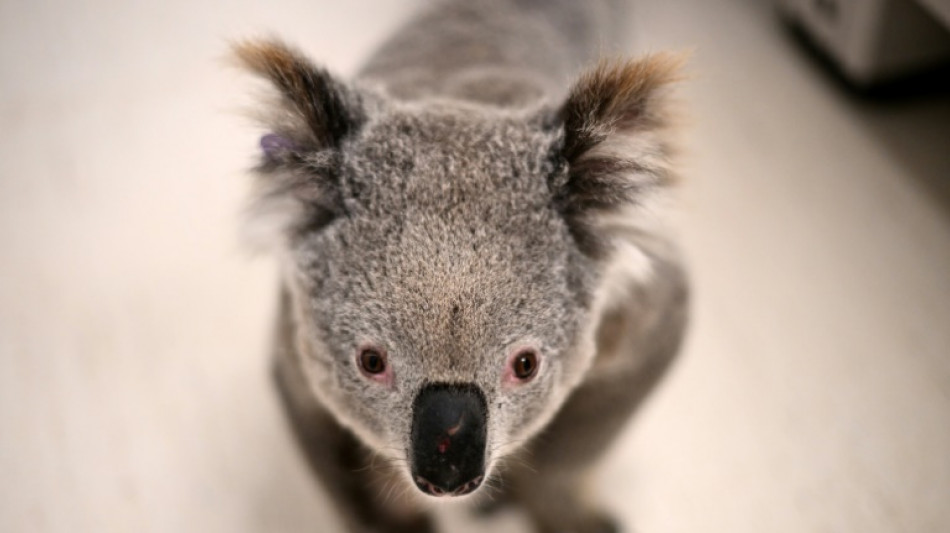

Australia approves chlamydia vaccine for koalas
Australian regulators have approved a chlamydia vaccine for koalas, researchers said Wednesday, as they seek to stamp out a sexually transmitted disease responsible for about half of all deaths of the fluffy marsupial in the wild.
For a decade, scientists at the University of the Sunshine Coast trialled the chlamydia vaccine in controlled settings.
But approval from the veterinary medicine regulator means the single-dose shot can be nationally rolled out.
Lead researcher Professor Peter Timms said the disease was driving wild koalas to extinction, particularly in southeast Queensland and New South Wales.
In those areas, "infection rates within populations are often around 50 percent and in some cases can reach as high as 70 percent," he said.
Trials of the vaccine showed it reduced the likelihood of the herbivores developing chlamydia during breeding age and decreased deaths in wild populations by at least 65 percent.
Antibiotics were previously the only treatment for the chlamydia-ridden tree-dwellers but it disrupted their digestive abilities and did not protect against future infections.
Chlamydia was first observed in koalas about 50 years ago.
The bacterial infection causes blindness, bladder infections, infertility and death.
The disease has taken a heavy toll on Australia's koala population.
The native species are shy and notoriously difficult to count, but the government considers the animal as endangered along the east coast.
Australia's official national monitoring programme estimates between 95,000 and 238,000 koalas live in the eastern states of Queensland, New South Wales and the Australian Capital Territory.
Another 129,000 to 286,000 of the marsupials are estimated to be living in Victoria and South Australia.
Expanding cities, land clearance and the spread of chlamydia are devastating the populations of one of Australia's most well-loved animals.
Scientists believe Australia has the highest rate of mammal extinction in the world, with about 100 of the country's unique flora and fauna species wiped out in the past 123 years.
Australia halted logging in a large stretch of the eastern coast on Sunday to create a retreat for koalas and save the local population from extinction.
G.Bianchi--GdR



